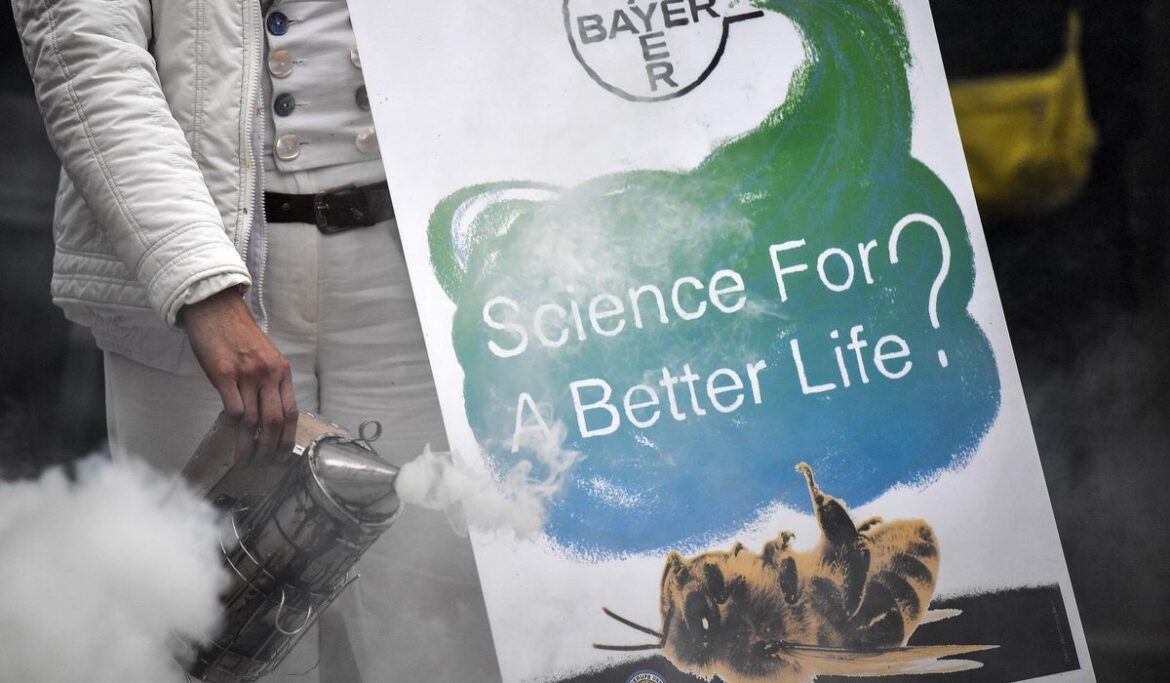OPINION:
“Glyphosate is so harmful to humans. And it’s sprayed all over your oatmeal,” a social media user posted on X.
The man parades in front of the oatmeal section of a grocery store and says we should all drop this classic breakfast option due to its exposure to common chemicals used in agriculture. The business of producing food makes strange bedfellows, and this oatmeal crusader could find allies anywhere from the far right to the hard left.
The list of opponents to pesticides is long and diverse: It includes conservative health nuts and very online paleo types, libertarian corporate skeptics and off-gridders, haughty old-school liberals and conspiracy theorists like Robert F. Kennedy Jr., the classic liberal hippies and environmentalists. They form an unholy alliance of otherwise modern people who argue for a regulatory regime that cracks down on these products and sends us back in time on food production.
Nostalgia makes for strange politics, and fantasies about the virtue of small farms free of innovation or industrialization can be found in any political corner.
What brings them all together? Chiefly, a general technophobia — the fear and avoidance of modern innovation — but also a widespread distrust of the manufacturers that produce these chemicals.
In fact, just the word “chemical” provokes an adverse reaction in many consumers. Swiss researchers have analyzed this effect, which they describe as “chemophobia,” and conclude that “basic toxicological principles can be fundamentally taught in schools or disseminated by toxicologists and scientists who are trusted by the public to reduce chemophobia.”
Farmers rarely feel the wrath of public distrust; on the contrary, they continuously receive public sympathy for anything from a bad harvest to their fraught relationship with retailers. Yet the legislation supported by anti-pesticide campaigners would also hit farmers the hardest.
Consumers shouldn’t be expected to know every detail of their food’s journey to the plate, so they deserve many choices. They can shop for alternative products according to what best fits their individual ethics and comfort level.
What they do not deserve, however, is the right to ban products that are deemed safe by regulatory agencies. Politicians often know better but still attempt to restrict products that are necessary to fight pests and preserve yields if it scores them political points. There is usually nothing to gain from telling your voters that their fears are unfounded.
Since 1960, pesticide use per acre has dropped by 40%, persistence by 50%, and active ingredient content by 95%, thanks to modern tools like smart sprayers. Rigorous regulations govern crop protection chemicals, involving federal and state regulators, quality checks, risk communication, and legal oversight for manufacturers.
In the minds of many concerned citizens, however, you’d think we were still in the 1960s.
Trust in the integrity and safety of the food supply can be achieved in one of two ways: It can be felt, or it can be proved.
The latter is what most communication in the agricultural field focuses on. An overwhelming body of scientific evidence points to the safety of both glyphosate and atrazine, two of the most commonly used pesticides in American agriculture. The commonly backed view that neonicotinoid insecticides harm bees also turns out to be false. That said, there are only so many studies you can throw into the conversation before it becomes apparent that trust is incredibly hard to gain but easy to lose.
Officials in Flint, Michigan, know this all too well. Despite the water being made safe once again for consumption several years ago, per capita consumption of bottled water there is far above the national average. All it takes is a single human error for entire systems to be discredited by consumers.
Similarly, errors have been made with pesticides used in agriculture. Some farmers have gotten concentration levels wrong and inaccurately used crop protection products which led to recalls on products. Human error is reality, but we can’t give in to throwing the baby out with the bathwater and banning all pesticide use, which would send the price of food skyrocketing and compromise the integrity of our ecosystems.
Case in point: Stanford University researchers found that if we farmed in the same manner as we did in 1960, a land mass the size of Russia would have to be cleared to produce in that manner. We do things so much better now.
For consumers to make informed choices, we need a transparent and nuanced debate about the cost and benefits of our food systems. Screaming at oatmeal boxes won’t cut it. It’s 2023, and we should be able to talk about something as straightforward as food production without theatrics.
• Bill Wirtz is senior policy analyst at the Consumer Choice Center, where he focuses on agriculture and trade. He has published “No Copy-paste: What Not to Emulate From Europe’s Agriculture Regulation.”


